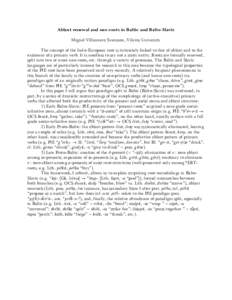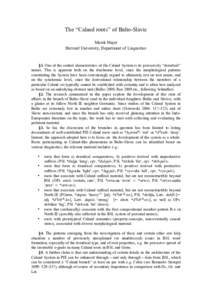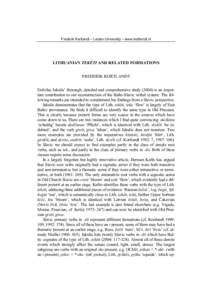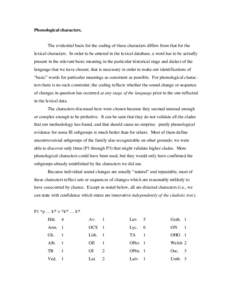<--- Back to Details
| First Page | Document Content | |
|---|---|---|
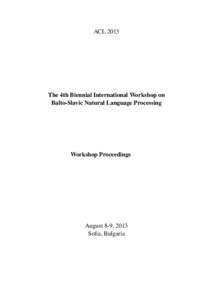 Date: 2014-03-13 10:29:08Linguistic typology Fusional languages Linguistics West Slavic languages Academic conferences Balto-Slavic languages Slavic languages Polish language Proto-Indo-European language Baltic languages Natural language processing Slavs |
Add to Reading List |
 Proceedings of the 4th Biennial International Workshop on Balto-Slavic Natural Language Processing
Proceedings of the 4th Biennial International Workshop on Balto-Slavic Natural Language Processing